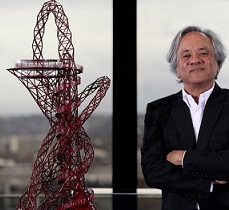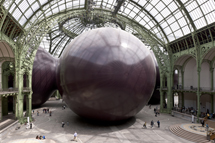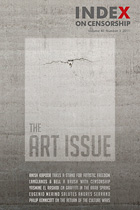28 Sep 2011 | Asia and Pacific, China
We’ve been alerted to a debate that has arisen regarding our post on Monday 26 September, in which we noted that the New York Times had reported that a journalist investigating a sex slavery scandal in China’s Henan province had been “detained” and accused of “revealing state secrets”.
The journalist in question, Ji Xuguang, posted a message on Weibo saying that, contrary to online rumours, he had not been “arrested” (although his previous Weibo postings stated he had indeed been accused of revealing state secrets). Yet the term “arrested” was never used in the New York Times’ article: Jacobs stuck with “detained”.
In an email conversation, the article’s author, Andrew Jacobs, told me that the issue boils down to a “parsing of language.” He clarified:
Everything in that article was based on Mr. Ji’s own published words, both in an article he wrote and in his Weibo postings.
On Weibo, he sent out a message at 11:20 am alerting followers he was being questioned at his hotel by two men who refused to identity themselves. “I will probably be taken away. Please help,” is what he wrote and posted a picture of two men sitting on a couch. He said he would likely not be allowed to do any more reporting on the subject.
Jacobs added he believed Ji had been “detained” in the sense that “he was not allowed to waltz away from his questioners, which is why he asked his Weibo followers for help.”
Online questions put to Ji asking him if he had been “arrested” seems to have been where the semantics issue occurred. According to Jacobs, his research assistant called Ji and explained the difference between “detained” and “arrested”. His assistant reportedly said:
He [Ji] said he was sorry if his “Weibo clarification” had caused us any trouble, but he had to tweet his clarification because the Henan authorities were using this “dispute” against him. He said he was hauled out of bed by his boss early one morning because Henan authorities accused him of getting the New York Times to exaggerate the story, so he had to come out and tell the truth, which is that he was not arrested.
With limited information of the events to hand, one could argue that “detained” was an extreme choice of words; perhaps “held for questioning” would have been a safer option. For Adam Minter, a writer based in Shanghai, the Times has its own agenda when it comes to reporting on China. He told me,
I find it very hard to believe that Jacobs and his editors are so naive as to believe that Times’ readers won’t assume an arrest when the words “detained,” “China,” and “security agents” are thrown together.
(Incidentally, this would not be the first time the paper has come under fire for their coverage and fact-checking in the People’s Republic.)
In his Weibo messaging refuting the Times, Ji added that he is safe and that an apology had been issued by officials in the city of Luoyang, where his reporting of a sex dungeon scandal had taken place.
26 Sep 2011 | Magazine, News, Volume 40.03 Autumn 2011
 Earlier this year, the arrest and detention of Ai Weiwei, China’s most famous artist and Index contributor, caused an international outcry. In an exclusive interview with Index, celebrated sculptor Anish Kapoor explains why artists have a duty to take a stand for freedom of expression
Earlier this year, the arrest and detention of Ai Weiwei, China’s most famous artist and Index contributor, caused an international outcry. In an exclusive interview with Index, celebrated sculptor Anish Kapoor explains why artists have a duty to take a stand for freedom of expression
Index: When you made the decision to withdraw from the show in Beijing and to make a stand for Ai Weiwei, had you ever made that kind of political gesture before?
Anish Kapoor: When Ai Weiwei was arrested, I was doing this work in Paris at the Grand Palais [‘Leviathan’, pictured below]. I thought about it long and hard –– should I, shouldn’t I dedicate the work to Ai Weiwei? What does it mean? One has to be very clear that in doing such a thing you never do it without a degree of self-interest. I needed to understand what my self-interest was and what I was trying to do. Was this about Ai Weiwei or was it about me? And I decided in the end that as one of the big shows in Europe during the summer, I could dedicate it to Ai Weiwei and that it wasn’t about me. I discovered in doing it that actually I have a voice that I probably didn’t know I had before and I think that’s very important. And then I felt that since I’d already taken a stand, the show that the British Council was planning [“UK Now” in China next year] required a further stand. I think it’s essential that while there are still a hundred and more people locked up in Chinese jails — I’m talking about intellectuals, I’m not for the moment talking about ordinary people who go on the internet — I think it’s the duty of all artists to stand up and say we won’t take part. I’ve called out to artists all over — don’t take part, don’t show in China. A few have started to respond. I see that Daniel Buren, the great French conceptual artist, has pulled a show in China, and there are others. I’m glad to see it. It means something.
Index: You also proposed that galleries close for a day across the world and said it would be good for the art world to come together more.
Anish Kapoor: It’s perhaps naïve of me, but I think it’s important that we stand together for colleagues. It’s very hard for galleries to close for a day, but rather than a negative action, I feel in the end we were about to make a positive action on the anniversary of the 100 days of Ai Weiwei’s incarceration, but thankfully he was released. The positive action was to try and get thousands of galleries all over the world to show a work of Ai Weiwei’s.

Artists under threat
Index: China is an extreme case in the degree to which it controls, and attempts to control, freedom of expression. Would you like to see the art world being more politically engaged and showing more solidarity? There’s a very long tradition of writers coming together, but not in the art world.
Anish Kapoor: The art world is extremely fragmented. It is a place that’s also infiltrated by money and other instruments of influence. And it never finds itself in a place where it can shout. I think we need to learn how to do that and find a way to have singular voices. Through the whole period of Soviet repression of artists, which was severe, the art world didn’t say a thing. The avant-garde has held itself away from human rights. It’s been a great struggle for artists of non-European origin. It’s been a great struggle for women artists, quite contrary to the sense that the aesthetic world is an open forum –– it isn’t. It’s extremely doctrinaire and extremely partisan. And I think those battles are still being fought. So it’s not surprising at one level anyway.
I can only explain it by [the fact that] these old instruments of power in the art world are generally male and white, and within a certain aesthetic tradition. All of that has begun to fall apart in the last decade or so. We still haven’t got to the point where, if you like, lone, outsider voices can be properly heard. Ai Weiwei is a celebrity, so it’s relatively easy [for him to be heard] –– much harder in many other cases.
Index: Artists are more subject to arbitrary censorship wherever they are –– whether in the free world or more repressive world.
Anish Kapoor: I think it’s also because contemporary visual culture isn’t uni-directional.  When you write a piece, you have to articulate a precise point in words – political or otherwise. An art work can be nebulous in relation to the politics of its situation. It can indicate a discomfort without actually articulating it and therefore it’s much harder to pin down. It’s much harder to say: ‘This is subversive.’ It’s hard to define what subversive is –– especially in contemporary language and contemporary visual culture. Ai Weiwei, in that sense, is somewhat more articulated towards a series of events — noting down the number of people killed by corruption and maladministration, or collecting and making monuments with marbled doors of all the houses that have been knocked down and land that’s been taken away from the so-called squatters. It’s still nebulous though. If you look at the work it’s just a bunch of marbled doors. It doesn’t obviously say what we infer from it. Though we know what to infer of course.
When you write a piece, you have to articulate a precise point in words – political or otherwise. An art work can be nebulous in relation to the politics of its situation. It can indicate a discomfort without actually articulating it and therefore it’s much harder to pin down. It’s much harder to say: ‘This is subversive.’ It’s hard to define what subversive is –– especially in contemporary language and contemporary visual culture. Ai Weiwei, in that sense, is somewhat more articulated towards a series of events — noting down the number of people killed by corruption and maladministration, or collecting and making monuments with marbled doors of all the houses that have been knocked down and land that’s been taken away from the so-called squatters. It’s still nebulous though. If you look at the work it’s just a bunch of marbled doors. It doesn’t obviously say what we infer from it. Though we know what to infer of course.
Index: I’m also thinking of artists in the West. There’s a famous case of the Smithsonian last year bowing to conservative pressure. There’s galleries in London that have problems when they show the work of Sally Mann for example.
Anish Kapoor: I think we have a very carefully defined sense of what’s acceptable, especially if it goes near children or pornography — all those much more difficult areas. Censorship is there and some of it is okay, I assume. But how we monitor it is important.
Index: When you say it’s ok …
Anish Kapoor: I can see that there’s a reason to monitor pornography and paedophilia, especially unacceptable things, and we have to understand that anything that encourages them has to be watched carefully. I understand that impulse but we go there, even there, with great care.
Index: Artists are by the very nature of their work going to be more vulnerable to pressures of conservatism or conformism.
Anish Kapoor: Of course. There’s a kind of naughty boy or naughty girl way of doing it which a lot of artists have taken — why not? I’m not that kind of artist at all. I feel that agitprop as a method is problematic — for me — in terms of my poetic understanding of what a work can be.
When it comes to governments, economic interests override human rights
Index: I wanted to ask you about the British Council’s response to the dilemma of artists displaying work in countries that have a poor human rights record. Chief executive Martin Davidson has said: “It is through cultural exchange that we best demonstrate the benefits of free artistic expression and build supportive links between people in the UK and China.”
Anish Kapoor: I say phooey to that I’m afraid. I did suggest to them [that they] ought to make the central piece in the [UK Now] show a kind of dedication to Ai Weiwei — or to one of the other artists. If they’re going to do this show then they ought to have [Chinese] artists properly take part. The governmental view over the past 30 years has been we’ll speak quietly in public and loudly in private. Well, 30 years of doing that hasn’t done a damn thing. We had the premier of China here [in London] and Cameron was silent on the subject. [Was that] just because Ai was released? No, that was carefully timed. And I think silence says that there are economic interests that override human rights interests. It’s disgraceful.
Index on Censorship: China’s one of the most flagrant examples [of human rights abuse], Iran would be another. Would you start applying the same [tactics] to other countries?
Anish Kapoor: One has to. In the end one has to. Iranian culture, like Chinese culture, is extraordinary. One has to take a moral stand in a way with colleagues for solidarity. I think it’s important to understand in this also that governments are ineffective. I think that’s maybe the most important point of all. Individuals have to do it all. So therefore it’s our duty as individuals to stand up and say we won’t take part or protest. The Chinese don’t listen to anyone while there are government protests — I have absolutely no doubt whatsoever that it’s individuals making a noise all over the world that made them release Ai Weiwei. I’ve no doubt about it. Governments are just ineffective at this. And we have the power. We must do something.

This article appears in The art issue (Autumn 2011) of Index on Censorship magazine. Click on
The Art Issue for subscription options and more
This issue is nominated for an Amnesty Award
23 Sep 2011 | Index Index, minipost
Video game fans awaiting the release of Diablo 3 in China fear that the game will be heavily censored. Amid reports that the game has entered the beta-testing phase, rumours that it is quite bloody are making Chinese fans nervous that they will face a toned-down version, as they did with World of Warcraft. The Chinese version of World of Warcraft, made by Blizzard the same company as Diablo, was changed. Gamers took to Weibo with comments such as “#Diablo3# We’re not asking for much, just to play the goddamn original version, as long as it’s not censored it’s fine…”




